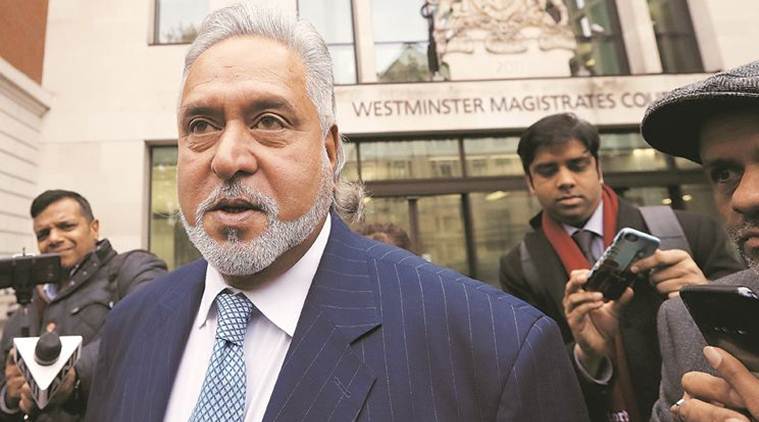The new corruption
Businessman-politician nexus has undermined state’s independence, promotion of public good.

Vijay Mallya became a Rajya Sabha member in the early 2000s with the support of Congress.
L‘Affaire Mallya is revealing of the different facets of the Indian version of crony capitalism. First, cronies have no political party; to be more precise, they shift allegiance from one party to another. Vijay Mallya became a Rajya Sabha member in the early 2000s with the support of Congress. He then joined Subramanian Swamy’s party and was finally re-elected to the upper house with the help of the BJP and the JD(S). Second, his political trajectory shows that parties need capitalists, according to a mechanism described by Raghuram Rajan in a remarkable paper, “Is there a threat of oligarchy in India?”.
“The poor need the savvy politicians to help them navigate through rotten public services. The politician needs the corrupt businessman to provide the funds that allows him to supply patronage to the poor and fight elections. The corrupt businessman needs the politician to get natural resources cheaply,” Rajan writes.
But the businessman in question not only needs access to natural resources, he also needs loans for his investments. The huge NPAs of the public banks today partly stem from this mechanism, as the country’s rulers can help friendly businessmen get loans from the public banks, even if the projects supporting their applications are not terribly convincing and even if they are running heavy debts — because the rulers in question will get something in return (possibly a fraction of the loans) in order to pay for their next election campaign. Mallya got loans from 17 different banks — mostly public banks whose directors are increasingly from the ranks of junior bureaucrats (when the post is not vacant) and whose arm can be (even more easily) twisted. The total amount of loans received by Mallya crossed $1.4 bn. When Kingfisher was declared bankrupt in 2013, that was exactly the amount the company owed to its employees, suppliers etc.
While Mallya has attracted attention, several other industrial houses illustrate the two dimensions of crony capitalism. The Adani group is a case in point as the company grew in the wake of Narendra Modi’s rise to power and continued to receive loans despite a high level of debt. According to the Credit Suisse, in 2015, the group got additional loans to acquire one more deep-sea port and two thermal plants, increasing by 16 per cent its debt, that was already among the highest — it had jumped from Rs 331 billion in 2011 to Rs 840 billion in 2015 (Credit Suisse Securities Research and Analytics, House of debt, October 21, 2015). The Credit Suisse report reviews the situation of 10 companies which continued to receive loans despite huge debts and which probably coincide with the list — kept secret — of the dozen of big defaulters representing a large part of the NPAs today.
However, Mallya belongs to a category of Indian businessmen who are, by and large, not represented on the Credit Suisse list. This category is made of those who are so active in politics that they have been elected on a party ticket. The number of such businessmen is increasing according to Aseema Sinha, who shows that the percentage businessmen-turned-MPs in the Lok Sabha jumped from 14 to 26 per cent between 1991 and 2014 — when 143 of the 282 BJP MPs belonged to this category, a record (‘India’s porous state’ in C Jaffrelot, A Kohli and K. Murali (eds), Business and Politics in India). This reflects the win-win equation between parties and businessmen: On the one hand, parties do not have to pay for the election campaigns of these rich candidates and on the other hand, these businessmen-turned-MPs get access to the corridors of power.
As MPs, big businessmen can access first-hand information that may be useful for their businesses — they may even influence the making of regulations affecting them. Mallya was a member of several committees related to his sectors, including the advisory council that the ministry of civil aviation set up in the 2000s, the committee on industry, the Standing Committee on Commerce, etc.
Mallya’s is not an isolated case: Other businessmen-turned MPs epitomise such conflicts of interest. Rajeev Chandrasekhar, a Rajya Sabha member who was elected first as an independent and reelected in 2018 with BJP support, had been a member of the Consultative Committee on Finance, of the Select Committee on Real Estate etc — in spite of the fact that he is the founder of Jupiter Capital, an investment and financial services firm.
Businessmen-turned MPs not only learn about the laws that Parliament is making to regulate their activities (possibly influence them), but they also come to know the bureaucrats who will implement these rules. They may even recruit them after retirement. A former chairman of the LIC, Sebi and the National Stock Exchange and a former finance secretary were part of Kingfisher’s Board of Directors. Similarly, bureaucrats of the Gujarat State Petroleum Corporation, an ex head of the Gujarat Maritime Board and a former Union home secretary have joined the Adani group.
The business houses benefit from the expertise and connections of senior bureaucrats. This means those who aspire to start a private sector career after retirement may not deal with private companies with a complete sense of independence when in office — all the more so as the cooling-off period can be waived on request, as evident from the way the last foreign secretary of India joined the Tata group immediately after retirement. Incidentally, the same argument can be extended to public servants (including judges and bank directors) who aspire for a government appointment (as governor for instance) and may, therefore, lose some of their independence.
Almost 30 years after liberalisation, the process has opened a chapter that has not only impacted the economy but Indian politics and society as well. New forms of corruption have emerged and a new political economy has crystallised. The different pillars of this multifaceted phenomenon have one thing in common: They undermine the state’s independence, and therefore, its promotion of public good via its emancipation from private interests. This is evident from the way businessmen lobby from within the political system by funding parties (something the new, opaque electoral bonds will make even easier) and by becoming MPs. There is a reverse trend as well: If businessmen become MPs and MLAs, MPs and MLAs (even ministers) also become businessmen. As a result, the functioning of the state is affected. Why should rulers make hospitals, schools and the police work if they have invested in clinics, private schools and security firms?
The writer is senior research fellow at CERI-Sciences Po/CNRS, Paris and professor at King’s India Institute, London
For all the latest Opinion News, download Indian Express App
More From Christophe Jaffrelot
- Absence on the benchExcept that the professionalism of the judiciary tends to decrease as one climbs down the judicial institutional ladder...
- Secular and communalLook closer and see how these descriptions have less to do with principle, more with contingency...
- Hindu Rashtra, de factoIt is at once a society, civilisation, nation — and state..












.png)



























No hay comentarios:
Publicar un comentario